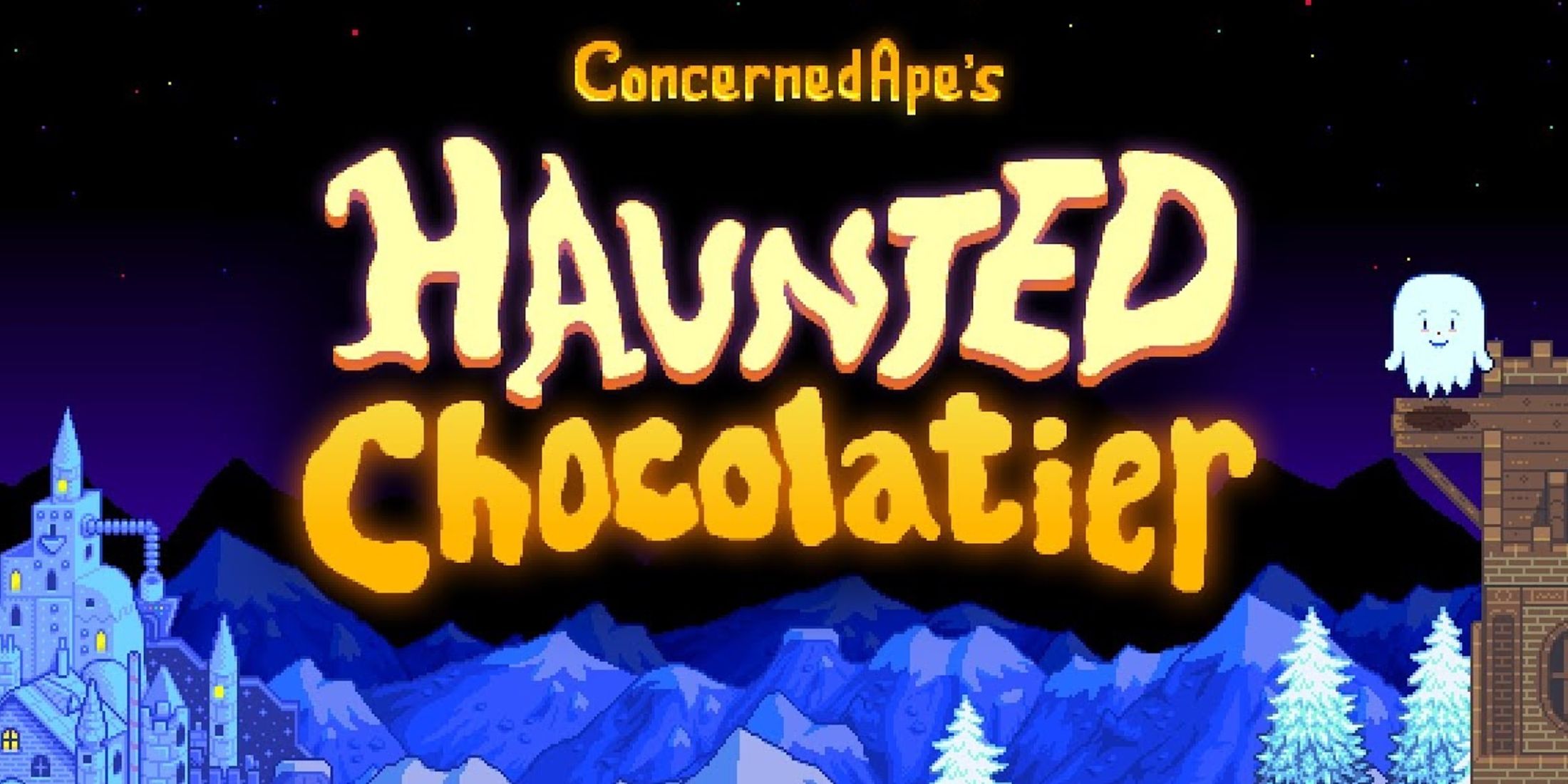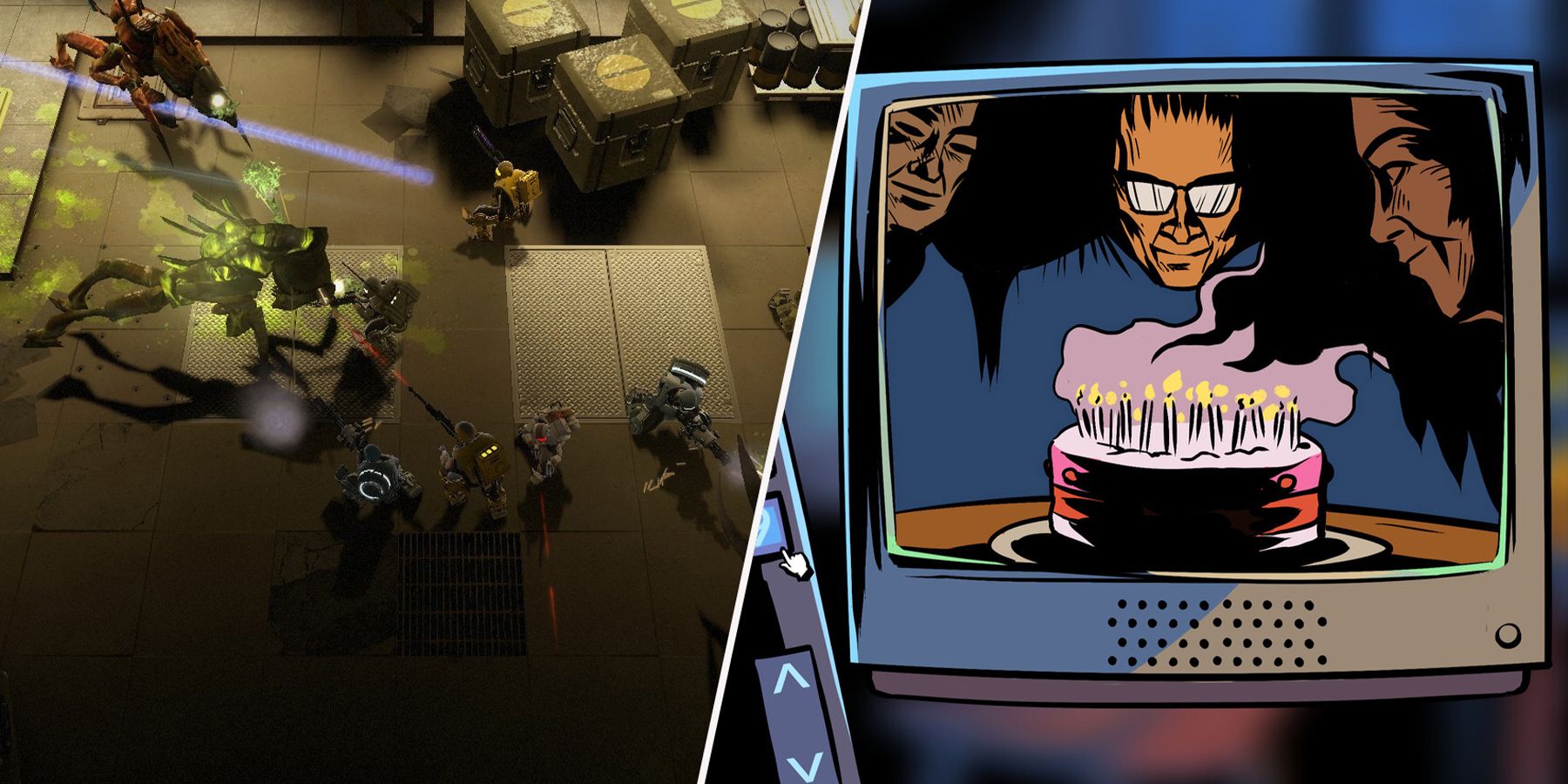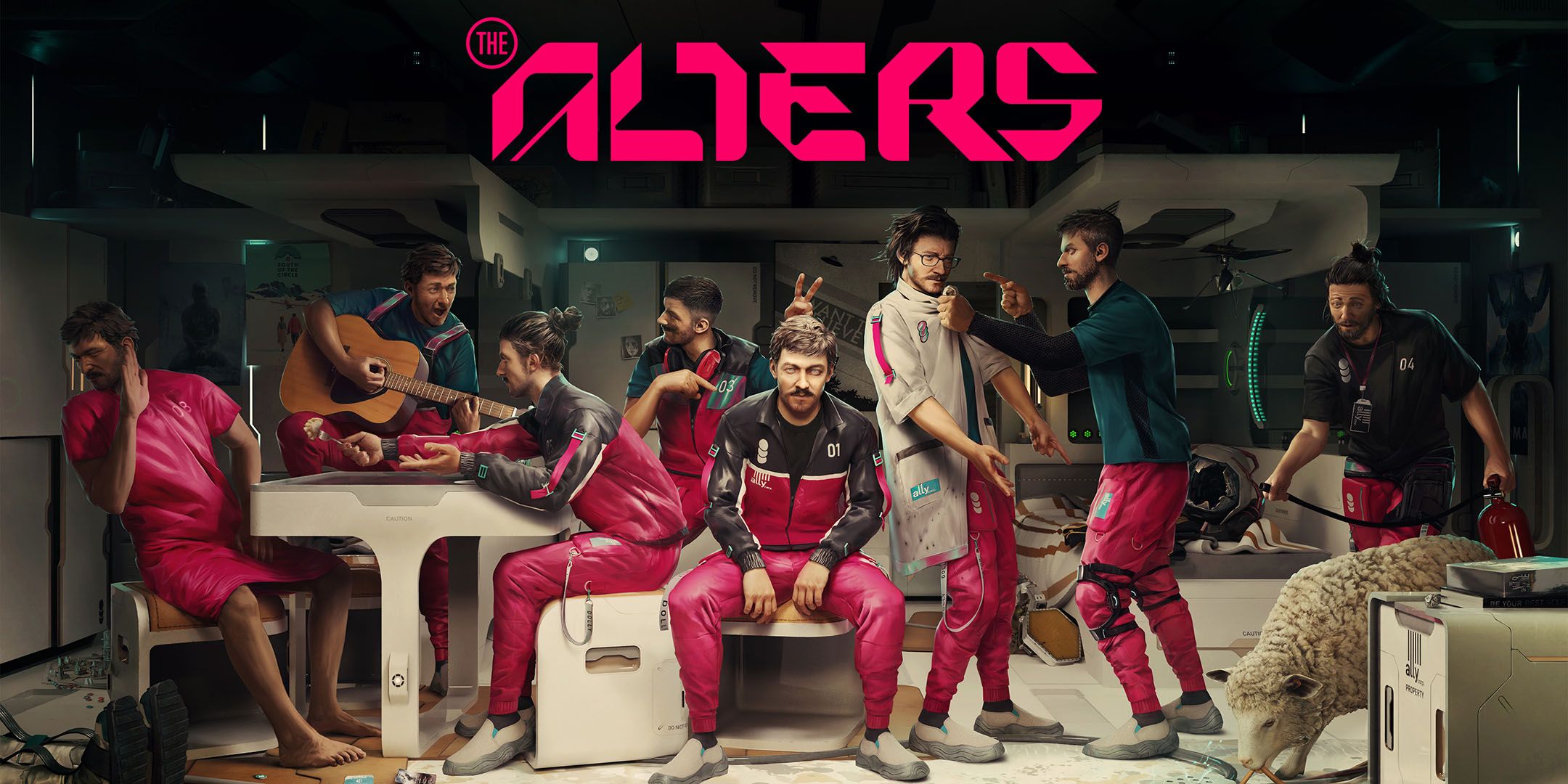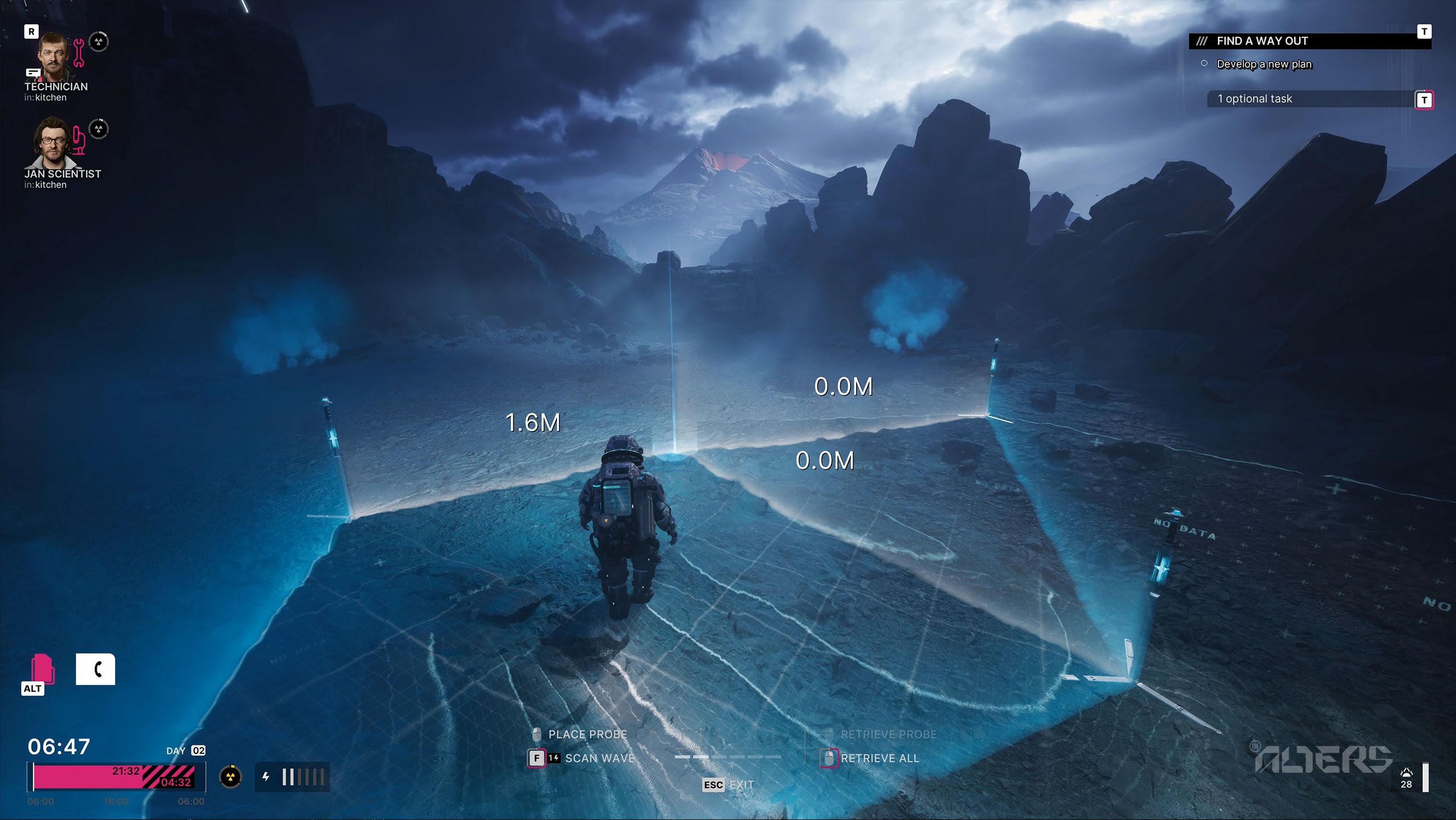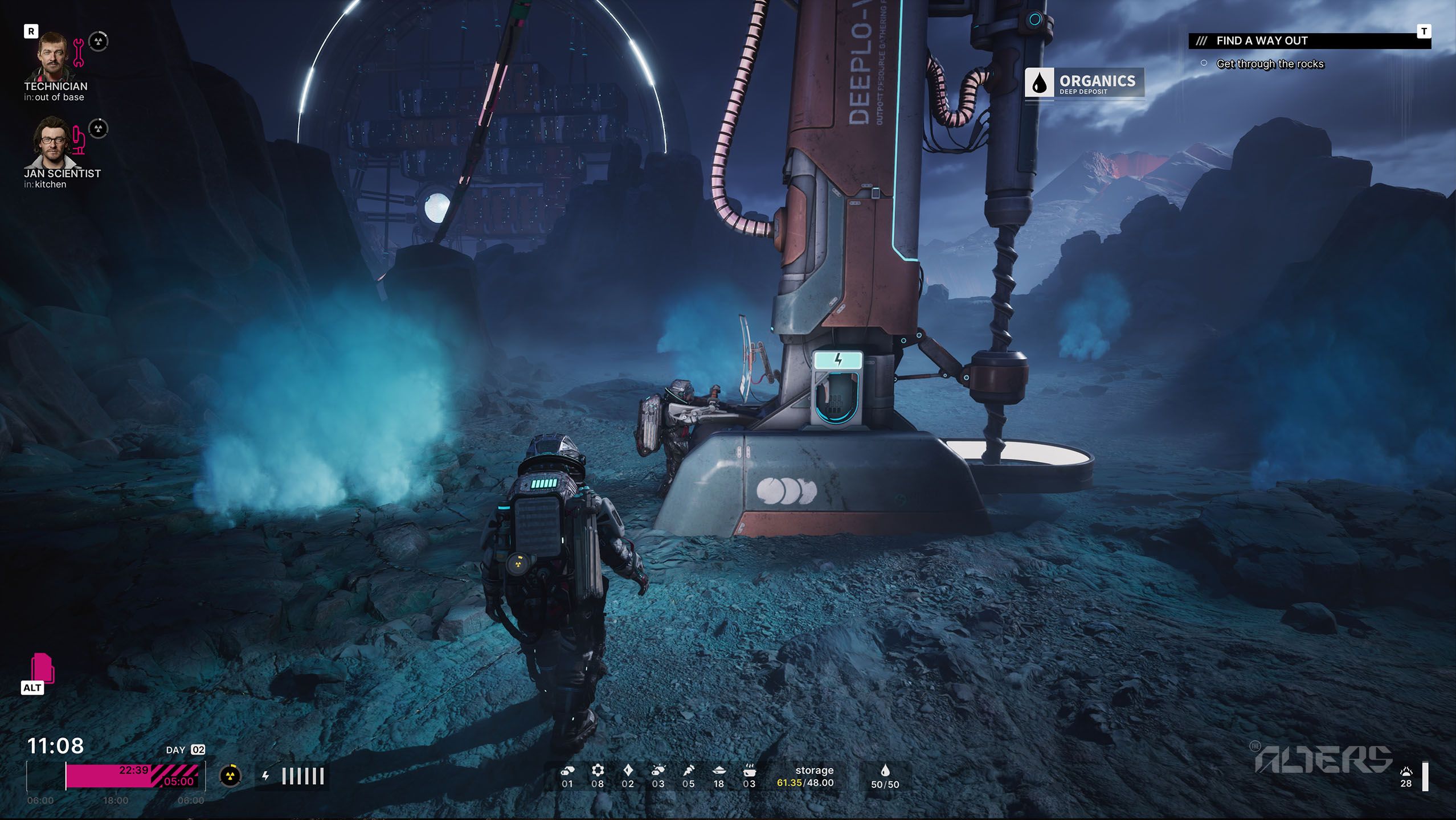The Alters is different, to say the least, because of how it pulls together and uniquely combines otherwise common gameplay elements. This ranges from common Sci-Fi tropes, intensive management, and survival gameplay to free exploration, resource gathering, and social simulation gameplay. At a glance, The Alters' story and gameplay approach appear so far outside the box that it's hard to imagine this all working together seamlessly, but it does just that.
In The Alters, players take on the role of worker Jan Dolski as he becomes trapped on a mysterious planet with a long day-night cycle. He must keep moving toward a hopeful evacuation point while avoiding sunrise, for the amount of radiation from the planet's three suns will kill him instantly. Everyone else is already dead, he has a massive ship to pilot, and Ally Corp, the company coordinating his rescue, cares more about Rapidium—a special, alien resource that speeds up processes like harvesting—than they do him. Luckily, Rapidium is valuable enough that Dolski has a chance but only if he can survive the suns, various versions of himself, and whatever else developer and publisher 11 bit decides to throw his way.
Game ZXC recently played about two hours of The Alters at 11 bit studios' event in Warsaw, Poland, and we walked away even more interested after getting hands on with the game. It's impossible to say, with our time in the game, how it lands all of its gameplay elements, but it's truly something novel in the beginning.
The Alters: Meet Yourselves
Exploration in The Alters
During the first two hours of the game, we survived our imminent death, made it to the ship, and realized we were all alone. We reached out to Ally Corp and were told that, if we didn't escape in 10 days, we were going to die come sunrise. Luckily, after time spent gathering resources, finding Rapidium, repairing the ship, and creating our first Alter, we managed to move the ship and extend our time away from the sun. Gaining about 20 extra days, we came to a roadblock when our ship - which is a giant wheel, of sorts - could not cross a lava river. We had to set out to find a new path on foot, while continuing to manage our base and Alters, and this is where we left off when our time was up.
Exploration in The Alters isn't revolutionary, but it is fun. When players exit the ship, they carry certain equipment that can be used to mine resources like organics and metals. Surface materials can be gathered directly, while deep veins require honing in and setting up an extractor to gather material. In every element of the game time is a factor. Gathering resources speeds up the clock, and while they are needed to survive, time is also necessary to push the narrative along. A skilled Alters player, of course, will make the most of each day, but it takes time to learn.
By the end of any given day, players have to manage what resources they use to expand the base, how they gather those resources, and the time of "day" alongside their stamina. When we made it to the next section of the game, the new map was notably bigger, and we had to gather more structures like extractors and pylons to accomplish all of this, demanding more of our decreasing time. We also had to utilize new gear to get through piled-up rocks and zip up to higher platforms, forcing us to constantly expand our exploration gear in the base on top of everything else.
The Alters features a lot of smaller, interconnected systems that make exploration a lot deeper than it may look on the surface; if anything, exploration is as much a resource management game system as anything else. Later on, we were also able to assign our Alters with tasks like gathering organics at the extractor, but this put them at risk of radiation sickness and other survival issues.
The Various Alters
Alongside managing the exploration, there is the social simulation element of The Alters at play; after all, escaping the sun and manning a gigantic ship is more than a one-man job. Upon discovering Rapidium, Ally Corp unlocks a special base module called the Womb in conjunction with the base's supercomputer. The Alters didn't actually exist before this creation; it's not like they come from a multiverse where Jan made different decisions. Instead, the supercomputer performs extremely complex calculations that show break points in Jan's "Tree of Life" that can be used to generate a Jan who "had" different life experiences that led him to different professions. Rapidium is used to manufacture a body with Jan's DNA, while the supercomputer creates their memories and knowledge. They're clones of Jan, but also not - none of them actually existed before their creation by the Tree of Life.
The first Jan we created was an engineer because we couldn't figure out why the ship wouldn't start. Both the Alter, who has "real" memories, and the player character are caught off-guard by this, but luckily Alters are under some panic suppression drugs when they come to. Jan Engineer was highly confused and understandably frustrated, believing his creation was some form of joke. Luckily, there's no second-guessing how someone feels because the game communicates as much in emotion bubbles around the Alter. Suppressing his existential crisis, this Alter was quick to fix our ship's error, but he then demanded we stay away from him, which is obviously not ideal. We had to use the bonds in our lives to come closer, resulting in a heartwarming scene where the "real" Jan confesses to never standing up to his abusive father, as Jan Engineer did. However, Jan Engineer became a more direct version of the real one, who was more abrasive and ultimately less trusting. Bonding over their father and recalling their mother's pierogi created a better relationship between the two Jans.
Later on, we also created Jan Scientist who left his abusive family and stayed in education; as a scientist, he seemed like someone who'd be able to help us on our journey. It's worth noting that The Alters devs told us that it's impossible to see every Alter in a single playthrough, which adds replay value to the game. Jan Scientist was unlike his predecessor from the onset; instead of having an existential crisis, he seemed to better grasp the scenario than the real Jan (and us, admittedly). He was ready to get right into the mission, whereas the Engineer was not. Actually, insisting he take a break after coming to was not well-received, and his personality was very different from the first Jan and the Engineer's. It remains to be seen what it's like when there are more Alters, but Jan Engineer and Jan Scientist frequently argued over things like food quality. Jan Engineer was also quite upset when we forgot to build a dormitory for him and other Alters. In many ways, they help improve research, the narrative, and resource gathering, but they also work off a social simulation system that will seemingly become more complex to manage.
Other Alters we could see on the Tree of Life, but did not create, include a doctor, a miner, a botanist, and a handful of others. There are presumably others that can be created further into the game, but it's worth noting that the supercomputer did already require upgrades before some of the ones we saw could be created.
The Base Management of Alters
The Alters will demand rooms like dormitories or need things like infirmaries to perform tasks, but there's much more to it than that. Outside required rooms like the Captain's Quarters and The Womb, players need to ensure their base has a lot of storage, elevators to traverse floors, and the ability to fit everything Alters and they may need. Over time, players can upgrade their base to make more space, but it's uncertain what that looks like in the long term. When it comes to The Alters' base management, the easiest point of comparison is Fallout Shelter, but whereas that mobile game revolves around base management, it's only one piece of The Alter's puzzle. Rooms must also be maintained with repair kits, and it's just as intensive as every other system we saw in The Alters. Beyond just having the rooms available, there are the key functions of each room, ensuring that players have plenty to do in their limited time.
The Alters Gameplay Loop Hinges on Three Different Genres
A Day in The Alters
When all of this comes together, a day in The Alters could look like this. Players wake up at "6am," create some things they needed the previous day in the workshop, and head out to continue their exploration. They set up pylons and extractors to gather a new resource, while they continue to explore further out, stumbling upon the next main story point. It gives them a handful of other tasks, but they further divide the player's attention across the gameplay elements. While doing this, the Alters can ping the player that they need help or that they have an issue, and players have to choose whether to help or ignore them. Finding key resources or completing certain objectives can move the narrative forward, but they quickly need to get back to the ship before they become too tired or the "day" ends. Perhaps it feels like a lot was done, or perhaps it doesn't.
Getting back to the base, players may have to deal with a call from Earth, repair another room, and/or deal with the Alters' demands, and then continue to move forward the next day. However, they may also need a new module in their base, they may need to keep their Alters home, or they may need to improve a different system. Perhaps there's an emergency that means they spend the whole day working on these systems instead of progressing the narrative.
Perhaps a better way to visualize this is with Fallout Shelter. The Alters' base management plays similarly to but is definitely more complicated than, Fallout Shelter. However, stepping outside The Alters' ship is like exploration in Death Stranding and Starfield had a baby (to a very loose comparison), while dealing with the Alters is a lot like The Sims or Baldur's Gate 3. It's hard to pinpoint, but The Alters is part of all of these games and none of them at the same time.
Ultimately, its systems-based gameplay elements work well together, but there's a lot of ball juggling because everything is so heavily intertwined. It's a unique and exciting prospect, but one that could become overwhelming. Two hours in, it was getting perhaps close to that point, but we can't speak to how more automation could come into play or what the endgame looks like. The best thing about The Alters is that it is, wholly and completely, a creative risk in the survival game genre; its core premise is more unpredictable, ensuring some surprises for everyone.
The Alters releases in 2024 for PC, PS5, and Xbox Series X/S. Game ZXC was provided travel and lodging for the purposes of this preview.

